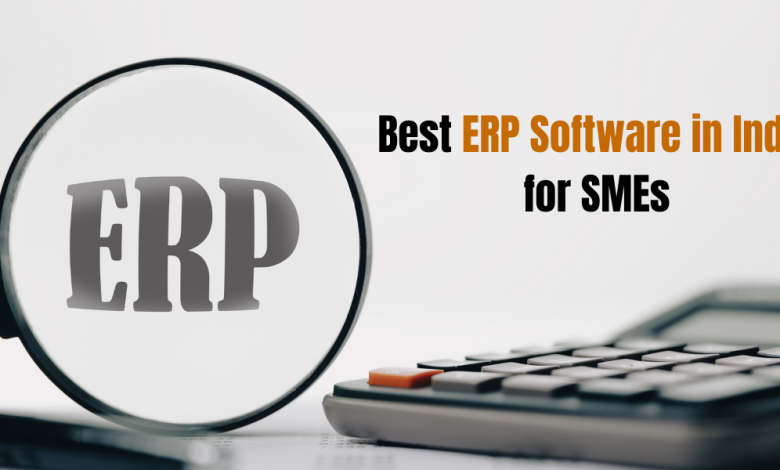Best ERP Software in India for SMEs 2022

In every sector, when a brand expands, the need for business process management becomes critical. In this digital era, software for this purpose is available. ERP software, often known as ERP Software in India, provides capabilities to organizations all over the world. The software enables firms to link apps to manage their operations and automate a variety of back-office operations.
ERP software in India is an excellent alternative for businesses that want to manage their business processes in a single place. They enable the real-time integration of business management components such as customer relationship management, accounting, core HR, and supply chain management into a single piece of software.
Every industry, whether consulting or building, has a profusion of aspects that must be controlled. However, in addition to these external factors, a company must be capable of and supported by a good system to manage its most critical business activities in order to increase efficiency and return on investment (ROI). This is why ERPs have evolved into portable solutions.
Now that we know why you need an ERP. We have compiled the best ERP for SMEs in 2022, where you can get a quick description how to use its capabilities.
The following are key features to look for while selecting the finest ERP software in 2022:
In order to rank the various ERP software in India for businesses. One must ensure that they have a high customer adoption rate and simple to implement. Including average time and total cost of ownership, breadth, and depth of functionality, maturity of cloud solutions, the flexibility of solutions, scalability of solutions, ease of integration with third-party systems, vendor’s product roadmap and overall viability, ease of organizational change management and training, and strength of the vendor’s product roadmap and overall viability.
SAP Business One
SAP Business One is an ERP software platform designed primarily for SMEs. It was created with the concept that SMEs require ERP to assist them in managing their operations. But not the type of ERP required by large, complicated businesses. Finance, customer relationship management, warehouse, and production management, purchasing and procurement, and reporting and analytics are all functional modules.
The most important core features of SAP Business One are:
Financial Management– This module provides a comprehensive collection of tools for streamlining financial processes, allowing firms to increase profit margins, minimize mistakes, and make better decisions. Accounting, a fixed asset management system, banking, and reconciliation functionality, and financial reporting and analysis are among the tools available.
Sales and Customer Management– Users may manage the whole sales process and customer lifetime with this platform, from initial contact through final sale, as well as after-sales service and support. Sales and opportunity management, marketing campaign management, customer management, service management, reporting and analysis, and mobile sales are all covered by this function.
Purchasing and Inventory Control–This module allows customers to manage the whole order-to-pay cycle, including receipts, invoices, returns, and payments, which improves purchasing processes and reduces expenses. This solution includes master data management, faster procurement procedures, accounts payable, warehouse and accounting integration, and the ability to produce integrated reports with real-time data.
Business Intelligence — Users may utilize this module to generate timely, personalized, and accurate reports based on data from all over the company. Users may use straightforward tools, analytics with predefined metrics, and data visualizations to build reports.
Analytics and Reporting — This module enables users to make better business choices by gathering all vital data in real-time and making it available to the whole firm via dashboards and reports.
The key benefits of deploying SAP Business One include:
On-premises Deployment
- Compliance with internal data security policies
- Direct control and access to data
- Customize and extend business process more efficiently
- Leverage internal hardware and existing IT infrastructure and resources
- Perpetual licensing — higher upfront cost but the better total cost of ownership in the long term
- Less dependence on the always-connected internet
On-Cloud Deployment
- Easy and affordable implementation
- Secure browser-based access from anywhere, at any time
- Access to the most up-to-date functionality without having to rely on in-house IT employees
- Subscription licensing means no capital expenditure
- Manage critical business functions in the Web browser
Mobile app:
- Instant access for employees who need to view and update data from anywhere
- Integrated analytics enables real-time decision making
- Comprehensive sales and service functions
- Enables employees on the road to be more productive
Conclusion
Organizations want to invest in an ERP system because internal business procedures and overall business performance need to be improved. Try the best ERP software in India and take advantage of its capabilities for handling many functions throughout a company in a single system.


